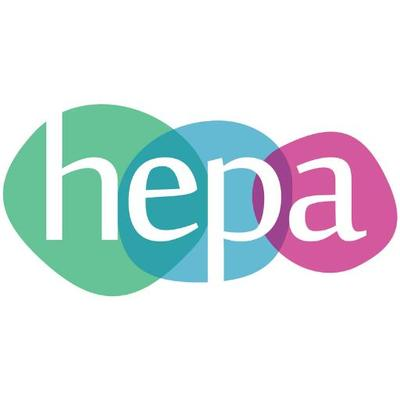Responsible Procurement Group
In conjunction with EAUC and HEPA the Responsible Procurement Group (RPG) was relaunched in May 2023. Helen Baker, Procurement Director, UWE, is the Chair.
The purpose of the RPG is to identify, share and promote best practice on Responsible Procurement throughout the sector and to stimulate the development of resources, principles and guidance to support members on Responsible Procurement. We have the following sub-groups:
- Supply chain climate action (Harriet Wallace, Director Sustainability Strategy, Imperial College)
- Circular economy & waste reduction (chaired by Angus Warren, CEO, APUC)
- Social responsibility (including social value & human rights) (chaired by Fiona Goodwin, Deputy CEO, EAUC)
- Supplier assurance (chaired by Candy Snelling, Associate Director for Estates and Sustainability, NERC/UKRI)
- HESCET (chaired by Ash Shelbrooke, Procurement Specialist, HEPA)
This is a closed group but we will share all tools, resources and outputs across HEPA and EAUC memberships. However if you are interested in finding out more about the sub groups please contact Ashley at HEPA as HEPA manage this group.
Tools & Resources
New Guidance: Supplier Assurance for Responsible Procurement
For most organisations, procurement of goods and services makes up a huge part – often around 80% – of their carbon footprint and wider impacts on the environment and society, much more than direct emissions from energy and fuel usage. That is why all of us who are involved in purchasing have such a crucial role to play in reducing our organisations’ supply chain risks and climate impacts. This guide sets out practical ways to do this, pitfalls to avoid and further sources of advice that you can draw on. Hopefully it will help you, your colleagues, and suppliers on your journey towards more sustainable practices.
New Guidance: Sustainability principles for ITC and digital technology in the FHE sector
This briefing note has been written for ITC professionals and procurement teams supporting the purchase of ITC equipment working within the Further and Higher Education Sectors (FHE). Its purpose is to assist colleagues develop meaningful institutional policies that contribute to the delivery of organisational carbon objectives. It describes key environmental principles and how these can be applied in practice to reduce the negative environmental impact of digital technology.
New Guidance on EDI for procurement teams and contract managers
A guidance document for procurement teams and contract managers has been produced by the Social Responsibility Sub-Group to help procurement teams, contract managers and sustainability teams. Please provide any feedback or examples of where you have used this guidance to share good practice to feedback to the group – please contact Fiona Goodwin at fgoodwin@eauc.org.uk.
New Guidance on Wellbeing for procurement teams and contract managers
A guidance document for procurement teams and contract managers has been produced by the Social Responsibility Sub-Group to help procurement teams, contract managers and sustainability teams. Please provide any feedback or examples of where you have used this guidance to share good practice to feedback to the group – please contact Fiona Goodwin at fgoodwin@eauc.org.uk.
New Guidance on Community Benefits for procurement teams and contract managers
A guidance document for procurement teams and contract managers has been produced by the Social Responsibility Sub-Group to help procurement teams, contract managers and sustainability teams. Please provide any feedback or examples of where you have used this guidance to share good practice to feedback to the group – please contact Fiona Goodwin at fgoodwin@eauc.org.uk.
UK University Purchasing Consortia Responsible Procurement
There are further resources available via the UKUPC site here.
Calculating scope 3 GHG emissions for your supply chain and the procurement of goods and services
Scope 3 supply chain emissions are substantial sources of emissions for all post-16 education institutions.
In Scotland, it is mandatory for further and higher education institutions to reporting their greenhouse gas emissions with expectations from Scottish Government and the Scottish Funding Council that this includes scope 3 supply chain emissions. In other parts of the UK and in the Republic of Ireland this is recommended.
You can view how to report greenhouse gas emissions using the Standardised Carbon Emissions Framework (SCEF) for FE and HE.
A number of tools and resources exist that help education institutions understand, scrutinise, and reduce the emissions arising from their supply chains. These are outlined below so you can find the most appropriate one for you and your sustainability and/or procurement teams.
This is a rapidly developing field so if you’re involved in the development of further tools and/or want to be connected to those responsible for the tools outlined below, please get in touch.
The Higher Education Supply Chain Emissions Tool (HESCET)
The HESCET tool maps the amount institutions spend on different categories of goods and services to the UK Government’s greenhouse gas emissions conversion codes for those categories. For example, if you spend £4,500 on catering, it converts this to an estimation of the greenhouse gas emissions created by that catering. This is known as a value to carbon calculation.
The categories within the HESCET tool align with Proc HE codes (a national coding convention used by procurement professionals), making it easier for you to use the tool if you already report using these codes.
Whilst the HESCET Tool was created initially for universities, EAUC members - both universities and colleges who are not part a purchasing consortia or a HEPA member can access the tool, for free, here.
The tool is now formally managed by HEPA who are part of BUFDG.
APUC Scope 3 Supply Chain Emissions Reporting Tool
APUC have developed a supply chain supplier scope 1, 2 and 3 emissions tool which uses the data they collate on institutions’ non-pay spend (spend on goods and services) alongside the value to carbon calculations used by HESCET. This provides institutions with automatically populated reports, reducing the need for manual data processing, that can be analysed using a broader range of criteria so information and trends can be understood with more granular detail. Data can be manipulated to show emissions by supplier, category and commodity as well as Proc HE codes. It also allows year-on-year comparisons.
All member institutions of NEUPC, NWUPC, LUPC, SUPC and APUC can, if they have provided their spend via the UKUPC spend classification service*, access this tool free of charge. A guidance document on how to use the APUC Scope 3 Supply Chain Emissions Reporting Tool has been created by EAUC and APUC, as part of EAUC Scotland’s Step-Change for Sustainability programme, funded by the Scottish Funding Council.
*Note that a small number of English consortia member institutions do not submit their basic spend data so the GHG data would not be available for these institutions. It is currently provided for all Scottish universities and colleges plus around 140 universities that are members of the English and Welsh UKUPC purchasing consortia.
APUC member institutions can download their APUC Scope 3 Emission Reports from Hunter. UKUPC-affiliated institutions outside of Scotland can download their Scope 3 Emissions Report from the Contract Uptake: Supplier and Framework Agreement Management platform.
Net Zero Carbon Supplier Tool
Nottingham Trent University (NTU), working in partnership with NETpositive Futures, have developed an innovative Net Zero Carbon Supplier Tool to calculate scope 3 supply chain emissions and engage supply chains on net zero. After initially using the sector HESCET tool to identify supply chain emission hotspots, the Net Zero Carbon Supplier Tool follows the EAUC SCER Framework by collating more detailed and accurate data directly from suppliers to form a robust supply chain carbon footprint.
Because of NTU’s commitment to social value and civic engagement, it was just as important that their tool served to help suppliers in demystifying net zero. The tool does so by providing them with tangible actions, thereby helping them to practically understand how and where they can begin or accelerate progress towards achieving it, therefore embedding sustainability into both their own and shared supply chains.
The Net Zero Carbon Supplier Tool was launched as a pilot to a selection of NTU’s suppliers in spring 2023. Suppliers can either input their known carbon footprint; or they can enter their energy and fuel use and the tool will not only calculate their scope 1&2 emissions but also support them to create a bespoke Carbon Action Plan at no cost to them. The tool has been specifically designed to be easy to understand and as least burdensome as possible whilst still making a positive impact and collating robust data. Suppliers only have to fill out the tool once, and by indicating which HE institutions they supply the data can be shared with partners from across the sector.
Since its inception, the tool has undergone further developments as a result of five universities taking part in a six-month beta testing phase. Keen to ensure the bringing together of expertise from across sustainable procurement to in further developing the bespoke tool for its launch to the sector, they embarked on a 12-month action research project with over 30 universities on 1st November, with each university contributing to its ongoing development and funding NetPositive Future’s involvement. NTU will continue to lead and contribute to its ongoing development in alignment with their core strategic values. The project not only aims to develop the tool for use across the sector, but is also exploring what support and guidance is required for sustainability and procurement professionals to collaborate creating more sustainable supply chains. For more information contact admin@netpositivefutures.co.uk.
Halfway into the one-year action research project, NTU and NETpositive Futures have produced a six-month report to share progress and their focus for the remainder of the project. Please visit Sustainable Procurement and Net Zero Carbon | Nottingham Trent University to read the report.
| Responsible Procurement Group Relaunch | 16th May 2023 | |
| Responsible Procurement Group Q1 2024 Update | ||
| Responsible Procurement Group Q2 2024 Update |












